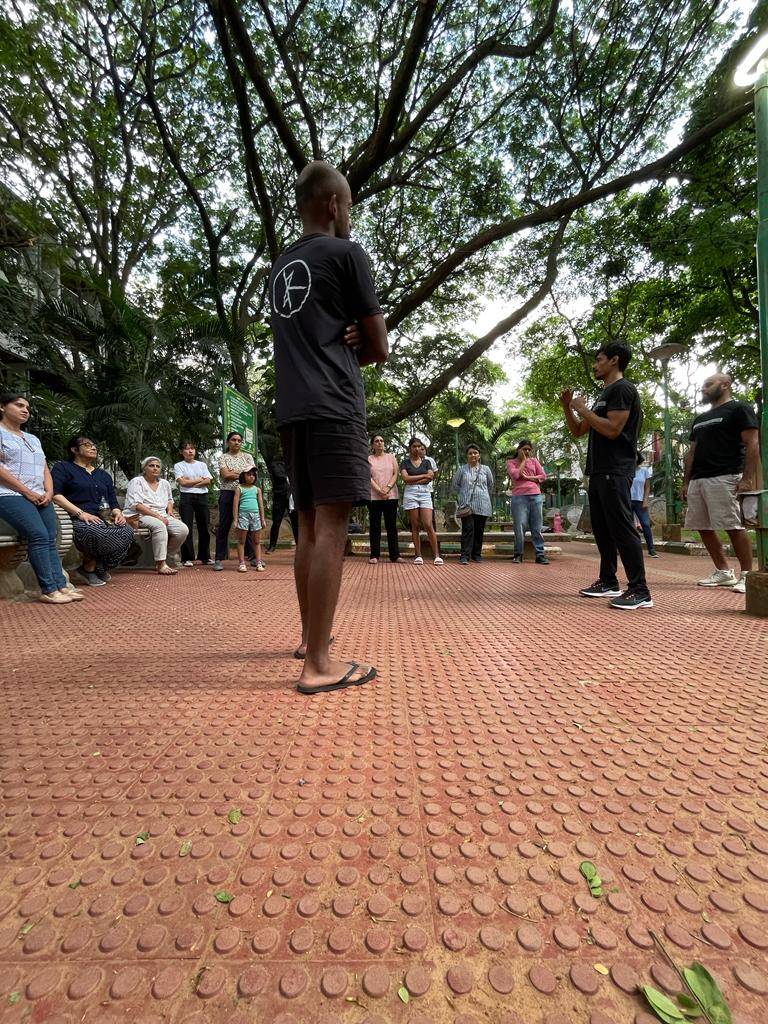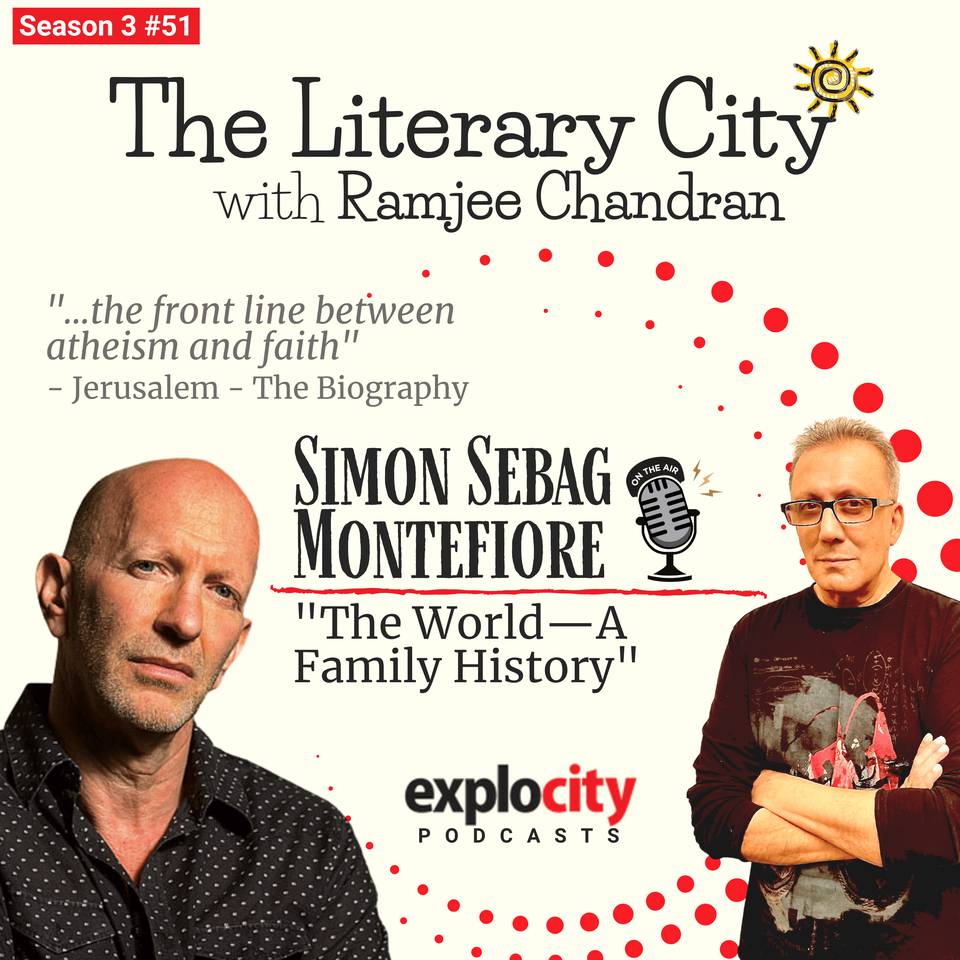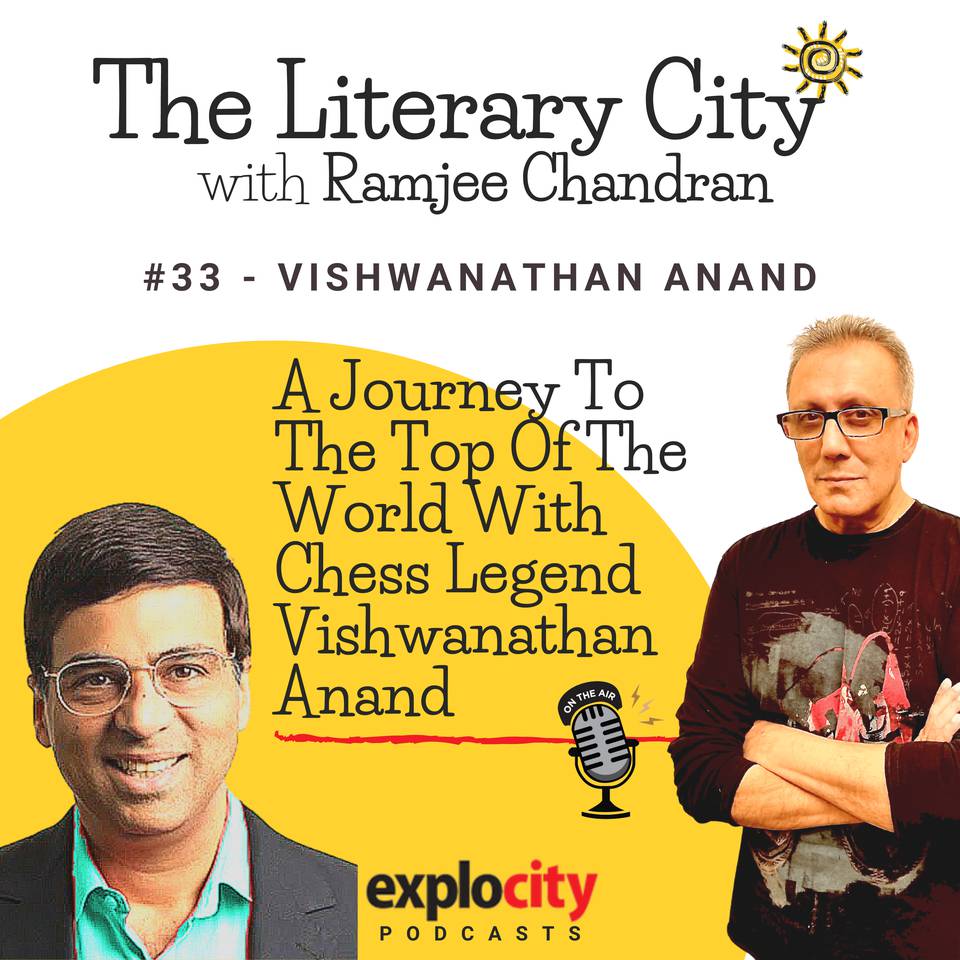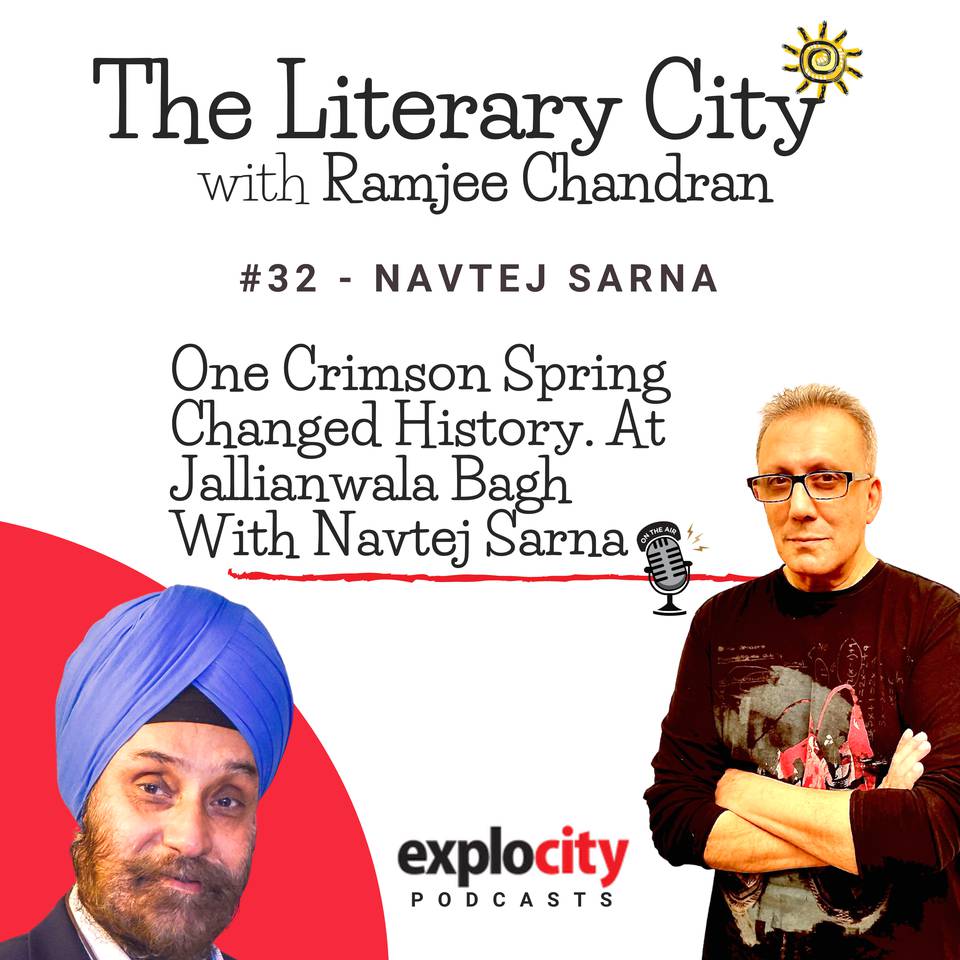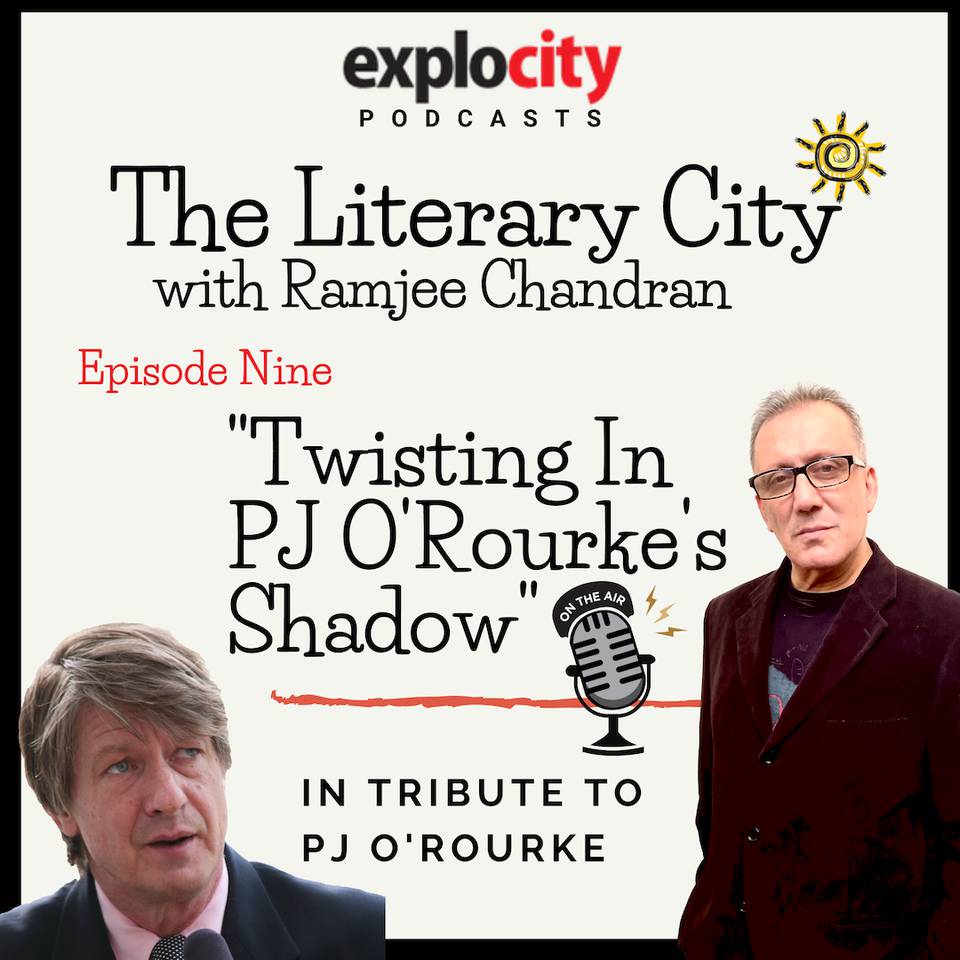Hamartia, Comma, Hubris, Comma, And The Literary Laws Of Aditya Sondhi
If lawyers must be grammatical, then there is a good chance that some of them will be literary. (For the same reason I suppose that many architects are also good designers.) And proof of that is my guest today, Aditya Sondhi.
Mar 03, 2022, 19 17 | Updated: Mar 03, 2022, 19 20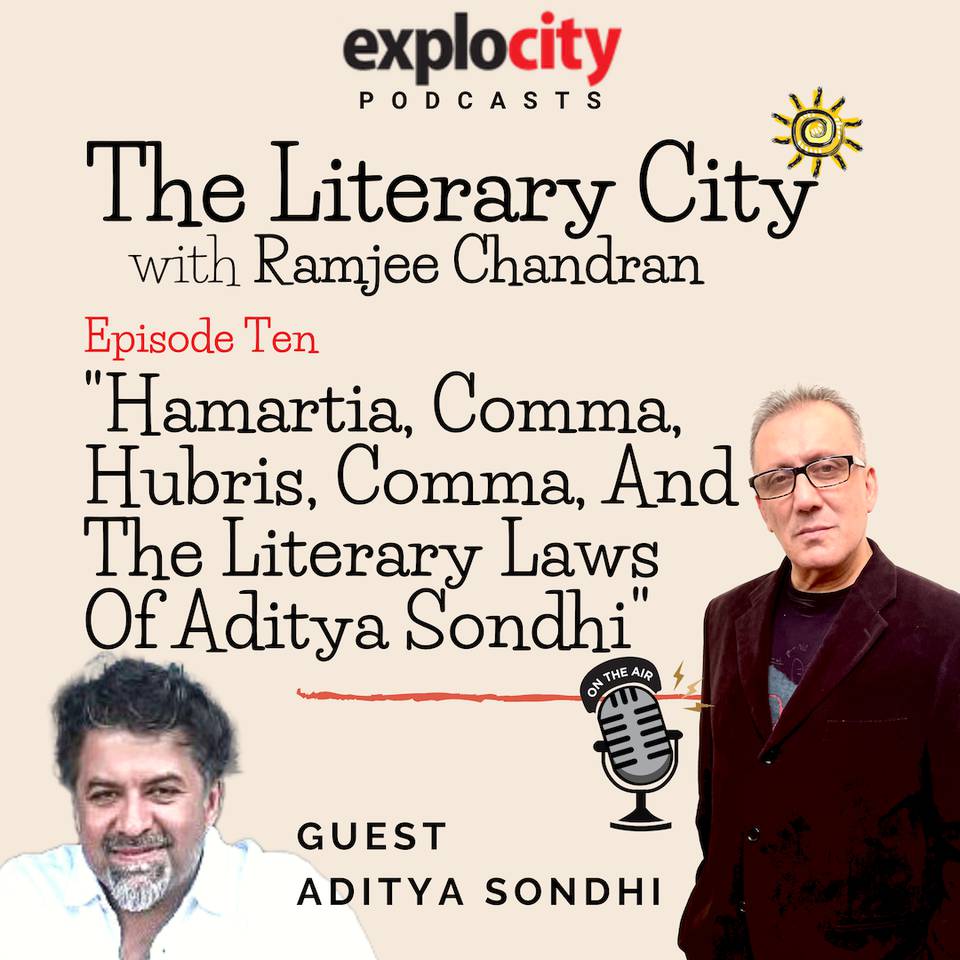
In this episode we spend quite a bit of time examining the comma.
This, the smallest of literary squiggles, is also the most important of all squiggles.
Not using a comma correctly could have serious implications - it could change the meaning of a sentence. It's one thing when that happens in daily life. Quite another in courts; a misplaced or missing comma could have serious legal implications.
In 2006, a dispute in Canada over a comma in a 14 page long contract in a telecom case resulted in a cost of 1 million Canadian dollars.
In another case, in the state of Maine in the United States, delivery drivers of the Oakhurst Dairy, were in a legal spat with their employers for overtime. The U.S. Court of Appeals determined that Maine’s overtime law was grammatically ambiguous, and for that reason, the drivers won the appeal.
The offending sentence was this: "The canning, processing, preserving, freezing, drying, marketing, storing, packing for shipment or distribution of: <...their products>"
The rules of the Oxford Comma—which Pea and I discuss at length in our segment "WHAT'S THAT WORD?!"—state that there should be a comma even before the last item on a list—even with the presence of "and".
By this rule, the sentence should have sported a comma between “shipment” and “or”. Such as this: "...packing for shipment, comma, or distribution"
Therefore, the court ruled that the absence of the comma meant the phrase “packing for shipment or distribution” was one action.
So, grammar is important in law.
And if lawyers must be grammatical, then there is a good chance that some of them will be literary. (For the same reason I suppose that many architects are also good designers.)
And proof of that is my guest today, Aditya Sondhi. A senior advocate with a Masters in Political Science and he a PhD, by a thesis on the army and democracy.
He is an author of two books, published by Penguin, and he has written two one-act plays—one of which was shortlisted for a prestigious award. Sondhi was also the winner of the Deccan Herald (a Bangalore-based newspaper) short story contest.
Who better than he with whom to discuss good grammar?
WHAT'S THAT WORD?! - THE OXFORD COMMA.
Co-host Pranati "Pea" Madhav joins Ramjee Chandran in the segment titled "What's That Word?"—or titled in whichever way Ramjee mangles the title—to discover the origins of the most important of squiggles, the humble comma.
The following is a transcript of Season 1 Episode 10 of The Literary City With Ramjee Chandran
[ramjee chandran] 0:00 CityCast from Explocity.
[aditya sondhi] 0:08 The men thought the fuss was only womanish frivolity. Fatigued because of the difficult nighttime inquiries, all they wanted was to get rid of the bother of the newcomer once and for all before the sun grew strong on that arid, windless day. They improvised a litter with the remains of foremasts and gaffs, tying it together with rigging so that it would bear the weight of the body until they reached the cliffs. They wanted to tie the anchor from a cargo ship to him so that he would sink easily into the deepest waves, where fish are blind and divers die of nostalgia, and bad currents would not bring him back to shore, as had happened with other bodies. But the more they hurried, the more the women thought of ways to waste time. They walked about like startled hens, pecking with the sea charms on their breasts, some interfering on one side to put a scapular of the good wind on the drowned man, some on the other side to put a wrist compass on him , and after a great deal of get away from there, woman, stay out of the way, look, you almost made me fall on top of the dead man, the men began to feel mistrust in their livers and started grumbling about why so many main-altar decorations for a stranger, because no matter how many nails and holy-water jars he had on him, the sharks would chew him all the same, but the women kept piling on their junk relics, running back and forth, stumbling, while they released in sighs what they did not in tears, so that the men finally exploded with since when has there ever been such a fuss over a drifting corpse, a drowned nobody, a piece of cold Wednesday meat.
[ramjee chandran] 2:14 In this episode, we spent quite a bit of time examining the comma. This the smallest of literary squiggles, is also the most important of all squiggles, not using a comma correctly could have serious implications, it could change the meaning of a sentence. It's quite one thing when that happens in daily life. Quite another in courts of law, a misplaced or missing comma could have serious legal implications. In 2016, a dispute in Canada over a comma in a 14 page long contract in a telecom case resulted in a cost of something like a million dollars. In another case in the state of Maine in the US. delivery drivers have Oakhurst dairy burden a legal spat with their employers for overtime. The US Court of Appeals determined that Maine’s overtime law was grammatically ambiguous. And for that reason, the drivers won the appeal. The sentence in question was this: The canning processing, preserving freezing drying, marketing, storing packing for shipment or distribution of whatever those products were. The rules of the Oxford comma which Pea & I will discuss in our segment, “WHAT’S THAT WORD?!” later in the show state that there should have been a comma between the words “shipment” and “or” like this… packing for shipment, comma or distribution. The court ruled that the lack of a comma meant the phrase packing for shipment or distribution was one action rather than two distinct actions, and then decided the case on that basis. So grammar is important in law. And if lawyers must be grammatical, then there is a very good chance that some of them will be literary. For the same reason, I suppose that many architects are also good designers.
And proof of that is my guest today, Aditya Sondhi, a Senior Advocate with a Master's in Political Science, and a PhD for a thesis he wrote on the army and democracy. He's an author of two books published by Penguin and an author of two one-act plays one of which got shortlisted for a prestigious award.
Who better than he, with whom to discuss good drama? So raise the curtains and let the man on stage. Dr. Aditya Sondhi. Aditya, it's great to have you on The Literary City.
[aditya sondhi] 4:49 Thank you, Ramjee, good to be here.
[ramjee chandran] 4:50 That passage you read Marquez, wasn't it?
[aditya sondhi] That's right.
[ramjee chandran] What's it called?
[aditya sondhi] 4:55 The handsomest drowned man in the world.
[ramjee chandran] 4:58 Handsomest drowned man. Which is why I guess Marquez has had his female characters fussing over a corpse. But then the story itself… such political allegory, wouldn't you say?
[aditya sondhi] 5:11 Yeah, I mean, those words came back to me after 30 years and they still have the magic of Marquez that he always had. The allegory, of course, I've never read Marquez for allegory. I mean, it's just his dreamy, almost otherworldly style of writing that does it for me.
[ramjee chandran] 5:31 Now, as a lawyer and a man of literature, as I pointed out in the monologue, is there a strong connection between the two?
[aditya sondhi] 5:39 Yes, or no, there's, of course, a strong discipline to the grammar of the law in terms of how you write and articulate and read it, no doubt about it. And there is also an interface in advocacy and literature in terms of making one's oral arguments more interesting, more impressive, and possibly, you know, more convincing. But that said, for me, the world of literature by itself is respite from the law in the sense I, I go to literature, to look at good law, good life outside of the law. There's really no part of my brain that's telling me that this is going to tie back into my profession. If it does well and good. Yeah.
[ramjee chandran] 6:22 And how do you make those oral arguments Interesting?
[aditya sondhi] 6:26 Well, I believe that's best done organically. And maybe that's where reading broadly helps, because I don't think you can orchestrate it. You will sometimes, on your feet arguing a case find that a metaphor or a phrase or a verse from a poem possibly could come in handy in that circumstance, it could make a pithy point it could even bring a bit of humor, sometimes
[ramjee chandran] 6:50 Banter, with and repartee in courts of law are matters of legend, also a romantic notion.
[aditya sondhi] 6:58 (Laughs) You're right. I mean, that's really what makes court enjoyable and light at times, things can get a bit, you know, sharp, sometimes it's the pressure of cases and so on. And it is exactly this banter that keeps things lighter. It's, it's also battle of wits sometimes and if you have a quip that gets you ahead, then why not?
[ramjee chandran] 7:18 So if you were the principal of a school of law, would you mandate that reading is a part of the main curriculum,
[aditya sondhi] 7:26 Certainly, I mean, look, being well informed on subjects out of your immediate discipline, I think is bread and butter for the law. Because the law is, in that sense, a very adaptable profession. So you're going to be dealing with issues from say biodiversity, to cryptocurrency, to gender rights, right, in the course of a week, possibly. And in that sense, being broadly read definitely helps you bring in your own knowledge. Of course, it's second hand knowledge sometimes when it comes to specialized areas, but it's important, it's important for you to read and understand the discipline that the case involves. So to that extent, of course, being broadly read is a virtue, the virtue to everyone, but I certainly think it is the case is for lawyers. Does it help you also bring in a little edge to your submission style, per se? I don't know. I've never never thought of that consciously. I think either you have that, or you don't. If ideas or thoughts come to you impromptu, I believe those are the best
[ramjee chandran] 8:33 Let's talk grammar.
[aditya sondhi] Yeah
[ramjee chandran] Punctuation, the humble comma.
[aditya sondhi] 8:37 I mean, commerce can create havoc in court, as they often have, especially, you know, in taxing statutes and so on where you have classes of goods that need to be assessed to tax in a comma can make a world of difference
[ramjee chandran] 8:51 that being the case does or should law school focus a lot of its attention on grammar and punctuation.
[aditya sondhi] 8:59 I mean, they do not that I remember too much of discussion around a comma in law school, but that's my fault, perhaps. But we have a course on what you've called statutory interpretation, which is in a separate, you know, subject by itself, which is of crucial importance in understanding how to interpret statutes. And…and in that sense, yes, but you know, that teaching more than in law school, I think should also happen in Parliament and in Legislature because that's where laws are drafted. Interpreted interpreting it is the job of lawyers in courts, but getting it right. Absolutely. Absolutely. So when a government order is drafted or a rule is is drafted or a statute or even a constitution is drafted, I think the onus is then on the draughtspersons to make sure that if you're using a comma you're using, you know, a preface or you're using and an or and so on, you pretty much got to be sure why you were doing it in If you see some of the older statutes and the older drafts of rules, you will find that there is great attention to detail. Almost nothing is left out. Everything belongs. That may not always be the case. And that's really where interpretation happens, disputes happen. And then courts have to break their heads over commas.
[ramjee chandran] 10:20 as a lay person, I'm so happy that you guys haven't brought theater into it. I mean, imagine if you started taking pauses into account.
[aditya sondhi] laughs
[ramjee chandran] We are going to cycle forward to theatre, but first you're a published author aren't here,
[aditya sondhi] 10:35 I was published twice with Penguin. These were two books dedicated to my old school, Cotton's…
[ramjee chandran] By Cotton's, you Bishop Cottons school in Bangalore?
[aditya sondhi] That's correct, whose Latin motto you picked up I saw in one of your pieces
[ramjee chandran] I found it fascinating.
[aditya sondhi] So these were books around the alumni of the school. And they were written basically to, in a sense of tributes. The second book came out on the sesquicentennial of the school and I tried to look look at 150 years of the history of the school through the lives of its alumni,
[ramjee chandran] 11:09 a history of the city in a way. Now, you've also written two plays. And during the pandemic, you did several plays online. Am I correct?
[aditya sondhi] 11:18 Well actually had a theater circle Ramjee, which we did, maybe we did maybe 15 or 16 readings over the last couple of years.
[ramjee chandran] 11:26 Wow, that's quite the effort. Do you have these bullies online somewhere?
[aditya sondhi] 11:30 Oh, no, they're not. We kept them offline, because the whole idea was to keep it slightly intimate. So pretty much still COVID kicked in. We used to do these readings in my living room. So you'd have sometimes 15, 20 30 people even sitting around intimately listening to two or three readers
[ramjee chandran] sounds like fun.
[aditya sondhi] And yeah, post COVID, we moved it online, which I don't think was the same thing to be honest. This was a group called Usher naming named after. Well, I don't I don't even remember how the name dropped, I think theater in Edinburgh if I'm not wrong, but yeah, that's that's what it was. So yeah, we did a bunch of readings over two years. And that led to me during the first lockdown deciding to sort of take the plunge and to try and write a short play, which is what I did
[ramjee chandran] 12:19 the play you wrote, what was it called?
[aditya sondhi] 12:23 Famagusta.
[ramjee chandran] 12:25 You sent me the play. I read it. And honestly, I thought it was very well crafted.
[aditya sondhi] Thank you.
[ramjee chandran] No, really, I liked it. So why don't we do? Why don't we staged that play on the literary city in one of the forthcoming episodes?
[aditya sondhi] Would love to?
[ramjee chandran] And if you allow me to suggest, I think the female characters should be my previous guest, Rubi Chakravarti.
[aditya sondhi] Oh, that would be fantastic.
[ramjee chandran] And I think she can pull off that particular role extremely well.
[aditya sondhi] 12:51 Well, thank you for the lead, then I will certainly check in on her.
[ramjee chandran] 12:54 Yeah, Rubi’s good, who were your literary influences. Who moved the needle?
[aditya sondhi] 12:59 I mean, different influences at different phases in my life, I'd say. And, I mean, I'd loved reading Milan Kundera more just for his style of writing. But in terms of a slightly more visceral influence, I think my readings around caste have influenced me very strongly
[ramjee chandran] Specifically?
[aditya sondhi] I mean, very broad writing on that Ramjee. I mean, everyone, obviously from Ambedkar, to Daya Pawar, to you know, more recent writing by Sujatha Gidla and many, many others
[ramjee chandran] Teltumbde?
[aditya sondhi] Teltumbde…there are there's a lot of new writing around caste. And I would say in the past few years, I found that area of great interest. It's difficult reading. It's, it's stuff that shows you a mirror, but I found that that was one area actually, that overlapped with my understanding of the law, especially constitutional law and write some some lectures that I've done around reservation, around caste etc, I found that my understanding of this very complex and very delicate area has been enhanced by reading on on caste.
But perhaps in my younger days, I know Shakespeare is a bit of a cliche, but we studied two tragedies of Shakespeare in school, Julius Caesar and Macbeth.
[ramjee chandran] Okay.
[aditya sondhi] 14:20 And I remember my English teacher, Mrs. Peacock, and what a fabulous teacher she was. She introduced us to the concept of hamartia, which was, you know, that one fatal flaw
[ramjee chandran] Right
[aditya sondhi] …in Shakespearean heroes or any heroes? Yes. And that got me reading a lot more around other Shakespearean tragedies, you know, Hamlet, King Lear and Othello, and so on. And as a concept, I found that fascinating
[ramjee chandran] 14:48
And the raging debate are hamartia and hubris synonymous?
[aditya sondhi] 14:53 Well, hubris could be one form of hamartia. I suppose. Hubris could probably feed in To, you know, ego and flattery, maybe the King Lear sort of hamartia. But otherwise, I would think that hamartia is a far broader sect in the sense that it's this inadvertent maybe genetic or, you know, manufacturing defect in your soul, which perhaps you're not oblivious to, or there's little you can do about it. I think that's where Shakespeare was coming from…the sort of character flaw that you don't see or you don't want to see and which can really be fatal at times. I think that that's where he was coming from. And to me, that's more than hubris.
[ramjee chandran] 15:42 You have mentioned Milan Kundera, Gabrielle Marquez, and Macbeth, and I'm going to throw in Kafka for good measure
[aditya sondhi] 15:51 …far greater on allegory to my mind than most other writers. Yeah.
[ramjee chandran] 15:56 Now, I see a connecting thread to each of these writers. You know, and I believe that connection is human frailty.
[aditya sondhi] 16:07 Yeah, I mean, well spotted. I, I didn't make that connection in my mind. But now that you said, it's probably true
[ramjee chandran] Why?
[aditya sondhi] Why… Maybe that's my hamartia. I have a thing for the big complex, and the uncertain. Maybe that's why I don't know
[ramjee chandran] 16:24 Well, one man's hamartia and all that.
[aditya sondhi] (laughs)
[ramjee chandran] And now, here's a question that I ask most literary people. The question is cliched, the answers seldom are/ The question is, which literary character would you most like to have dinner with?
[aditya sondhi] 16:39 My answer isn’t, I would say Godot. Because then I'm pretty much going to be eating by myself. He never comes, does he
[ramjee chandran] 16:47 (laughs) That's very funny. leaves you with the altar, doesn't he?
[aditya sondhi] 16:51 He does. He always does. I mean, the man is a nuisance. But Beckett and Godot gosh, I mean, look, that's a…that's a different ballgame.
[ramjee chandran] Right
[aditya sondhi] My friend Preetham Koilpillai who you interviewed, I think
[ramjee chandran] yes.
[aditya sondhi] On one of your earlier podcasts.
[ramjee chandran] Yes.
[aditya sondhi] Had something interesting to say, which was that when you read, Waiting For Godot,
[ramjee chandran] yeah
[aditya sondhi] you read it aloud may not read it yourself. You actually find a lyrical quality to use you don't when you read it to yourself. It just means so many things. And it means nothing at all at all at once. So yeah, I would I would love to chat with Gordo. If he shows up.
[ramjee chandran] 17:28 Will that be a table for one, sir?
[aditya sondhi] (laughs)
[ramjee chandran] And do you have a favorite literary quote?
[aditya sondhi] 17:34 Well, I mean, not too many. But I keep going back to Lewis Carroll. The time has come. the walrus said, very sort of prophetic and
[ramjee chandran] 17:42 that's the cabbages and kings one isn't it?
[aditya sondhi] 17:44 Yeah. ships and shoes and sealing wax cabbages and kings
[ramjee chandran] 17:48 Again, do you see the connection with Kafka and the rest of them?
[aditya sondhi] 17:53 I can, I can begin to see that. Yeah. (laughs)
[ramjee chandran] 17:56 We all have favorite opening lines, which one's yours?
[aditya sondhi] 18:00 The most memorable was the first line from I have the book here with me Salman Radhis. A time of madness, which is a memoir of partition
[ramjee chandran] 18:11 Salman Rashid, very frequently confused with Salman Rushdie. But please read the line.
[aditya sondhi] 18:17
On the 20th day of March 2008. I headed home for the first time in my life. I was 56 years and a month old. Unquote.
And to me, as belonging to a partition family. I thought these lines were profoundly beautiful. I mean, to be honest with you, I was reading this in Koshy’s. And I just put the book down because, you know, I had a lump in my throat. And this was a chap who was, you know, a converse partition of family that it moved from Jalandhar to Pakistan, and he comes back to his native home when he's 56 years old.
[ramjee chandran] hmmm
[aditya sondhi] There's another line which is not really an opening line from a book but a line that stayed with me, okay, which is what Juan Rulfo for the Mexican writer says
[ramjee chandran] Please
[aditya sondhi] it In my life. There are many silences.
[ramjee chandran] uh huh
[aditya sondhi] And this was something I think he said in the context of his novel. Pedro Paramo.
[ramjee chandran] 19:18 Now you must admit to the pattern
[aditya sondhi] 19:22 Yeah, I'm I'm caught on tape. I have no way out
[ramjee chandran] (laughs) Caught on tape.
[aditya sondhi] I was really introduced to him through an interview that Marquez had done. And I was amazed that he had such a profound influence on someone like Marquez and reading him. I mean, God he's a brooding and a dark writer. But yeah, there are these lines that he has in his books, and I think in things he has to say himself, which stayed
[ramjee chandran] 19:46 Maybe that stuff is the antichrist to your normally sunny disposition
[aditya sondhi] possibly, possibly
[ramjee chandran] and the Rulfo line that you just quoted
[aditya sondhi] 19:57 Yes in my life there are many silences
[ramjee chandran] 20:00 So when not if you become a judge, I hope that your autobiography will not be titled, In my life, there were many sentences.
[aditya sondhi] 20:11 Well, I'm not becoming a judge that possibly eliminates the possibility of an autobiography.
[ramjee chandran] 20:17 Well, we'll postpone that sentencing and see what transpires. And with that Aditya Sondhi, it was a complete pleasure to have you on The Literary City. Thank you so much for being here.
[aditya sondhi] 20:29
Thank you very much for having me. Ramjee. I thoroughly enjoyed our conversation.
[ramjee chandran] Likewise,
[ramjee chandran] 20:34
At the end of this episode, we have added to Sunday reading the balance of that Marquez passage.
But now it's time for that fun, popular segment. What's that word, where we look at phrases and words that we use all the time, but never stopped to think about where they came from? And to help me with that segment is my co host. And as always, I will let her introduce herself. Go right ahead.
[pranati madhav] 21:06 Hi, I'm Pranati. But you can call me P. That's P with an A not another another E
[ramjee chandran] 21:12 P with an A and not another E, do you know what one would call your obsessed secret admirer?
[pranati madhav] 21:18 Hey, I'm not admitting to any secret admirer. But I am curious. What would you call him?
[ramjee chandran] A Pea Nut.
[pranati madhav] Yeah, I suppose one would have to be nut to secretly admire me.
[ramjee chandran] 21:33 Oh that is very, very modest. But now that I'm past my one allowed Dad joke. Let's move on. Okay. P with an A. What's the word?
[pranati madhav] 21:42 Yeah. So in your monologue, and when you are talking to other guests, only? You guys spend a lot of time on the comma.
[ramjee chandran] Yes. Very important little squiggle.
[pranati madhav] Right. And you might say it gave me pause to bring it up today.
[ramjee chandran] 21:58 (groans) okay. Fine All right. You're also allowed one dad joke. Very, very funny. All right. So you want to talk about the comma today?
[pranati madhav] 22:07 Yeah, but not just any comma, specifically, the Oxford comma.
[ramjee chandran] 22:12 That's my favorite type of comma. All right. Sure. Shoot.
[pranati madhav] 22:16 Yeah. So first, why don't we define what is an Oxford comma?
[pranati madhav] Alright, go ahead. Define away.
[ramjee chandran] Okay. Sure. The Oxford comma is the final comma that, you know, comes before the conjunction in a list of three or more items
[ramjee chandran] 22:32 Could you say that in English.
[pranati madhav] 22:35 Yeah. Well, in school, you know how we were taught that there is no need for a comma before the end, right?
[ramjee chandran] Yeah
[pranati madhav] yeah. So because the and comes before the last word in a list. And so there's no need for a comma.
[ramjee chandran] I remember that.
[pranati madhav] Yeah. But the Oxford comma rules that there should be a comma. Is this not confusing?
[ramjee chandran] 22:55 Yeah. All right. Let's have an example of a sentence where an Oxford comma is not required.
[pranati madhav] 23:01 Yeah, I mean, that's sort of like, throw out the baby, comma, the bathwater, comma, and the kitchen sink. So in this sentence, there's really no need for a final comma is that
[ramjee chandran] 23:15 That's very deft. You mixed your metaphors. And you gave me an example. All right, in a sentence throw out the baby, the bathwater and the kitchen sink of an Oxford comma might not be required. Yeah, you're right. There's no need of putting a comma before the last and. But no, yeah, but not all sentences are like that.
[pranati madhav] 23:38 Okay, so give me an example of a sentence where the Oxford comma is necessary.
[ramjee chandran] 23:42 Okay, um, let me think ummm, I went for a walk with my dogs, grandpa and grandma.
[pranati madhav] um I don't get it.
[ramjee chandran] Right. I'll say it with the punctuation. I went for a walk with my dogs, comma, grandpa, comma, and grandma. Now, if I didn't have the last comma, before the end, it would read. I went for a walk with my dogs, grandpa and grandma, which means the names of my dogs are grandpa and grandma
[pranati madhav] 24:14 Yeah, that's funny.
[ramjee chandran] 24:15 You know, it's like you I'll say the same sentence. Like for example, if I didn't have the Oxford comma, I might be saying, I went for a walk with my dogs Spot and Fido.
[pranati madhav] 24:25 Yeah. And then you wouldn't need it.
[ramjee chandran] 24:28 But if I put an Oxford comma in, and it will change the meaning. So you see, and Oxford commas required? Let me give you a Yeah. Let me give you another example. I love my parents, Hillary Clinton and Santa Claus.
[pranati madhav] 24:43 Cool, why not? Okay, well, how can you write this without an Oxford comma and not be embarrassed?
[ramjee chandran] 24:50 Yeah, that's a good question. Actually. You know, you know, how can we reconstruct that sentence The sentence was, I love my parents, Hillary Clinton and Santa Claus, and you don't want to use an Oxford comma. But if I wanted to rewrite this without having to use an Oxford comm I would say I love Santa Claus. Hillary Clinton and my parents. No need no need for an Oxford comma.
[pranati madhav] 25:17 Yeah, but I'm betting you have another hilarious example lined up.
[ramjee chandran] 25:22 You know me. Okay. Yes. A rather unfortunate consequence of a Sky News headline.
[pranati madhav] Okay, let's hear it.
[ramjee chandran] This rather misleading headline read “World leaders at Mandela tribute Obama Castro handshake and same sex marriage date set.”
[pranati madhav] 25:42 Well congratulations, Mr. Obama and Mr. Castro I guess.
[ramjee chandran] 25:47 Well, you know, the Raul- Barak nuptials What can I say? Is very, very woke. Woke, like they woke the next morning and realized what they've done.
[pranati madhav] 26:00 It's funny. Okay, but let's get to the etymology. Where did it all start?
[ramjee chandran] 26:05 Okay, let me start with the Oxford comma. The Oxford comma has been attributed to Horace Hart, this guy, he was a printer in the Oxford University Press. And he was a printer, as it is said from 1893 to 1915, during which time in 1905, he wrote this tome called Harts rules for compositors and readers, you know, compositors are the guys that used to assemble the typeface and have a letter by letter by letter, you know, those, those are called compositors. So he had that book. Now, he used the comma and told people that he had, they had to use the comma before the last item in a list. Nobody called it the Oxford comma until many years afterwards, when this guy called Peter Sutcliffe, he, he wrote a book in 1978, about the history of the of the Oxford University Press in which he referred to this practice as the Oxford comma. Right. But the modern version of the comma itself comes from an Italian, a 15th century Italian printer called Aldo Manuzio. And he introduced the coma as we know it as a way to separate things.
[pranati madhav] 27:26 Yeah, you said, the modern version. So now I take it, you're going to bring in ancient Greece into it somehow.
[ramjee chandran] 27:36 I always love to bring Ancient Greece into it. So it's true. Well, the word karma comes from the Greek word. It says kaptein. Which means to cut off
[pranati madhav] See I knew it
[ramjee chandran] right. Anyway, this practice of of that word, it was invented in the third century BC by Aristophanes. And Aristophanes used that along with a different system, you know, he had a system of, of using dots to define pauses in speech. So when you wrote stuff, he would put dots in there to show a break in the speech. So in the time of Aristophanes, the comma used to be a diagonal slash known as the Virgula Suspensiva.
[pranati madhav] 28:25 Oh, that old virgula suspensiva trick?
[ramjee chandran] Yes, that trick?
[pranati madhav] What is the virgula suspensiva?
[ramjee chandran] 28:33 Well, I can't answer the question directly. But let me actually tell you about how it came to being now that comma has gone through more stages of branding than a hotel each time they tie up with another chain. Alright, but do you know what the comma was first called?
[pranati madhav] 28:49 No what?
[ramjee chandran] The comma
[pranati madhav] Well, that clears everything up. But actually, that's quite fascinating that it didn't have much change over time. So tell me more.
[ramjee chandran] 29:00 It had a lot of change over time. And let me explain that so it started with it being called a comma. And then then people not satisfied with leaving it as the comma. They called it the subdistinctio, alright?
[pranati madhav] Ok
[ramjee chandran] and, and then by the 12th century, even before they started handing out MBAs at street corners, they rebranded it and called it the virgula suspensiva
[pranati madhav] okay.
[ramjee chandran] Right. So that's how it came to be called. So first comma, then subdistinctio, and even that was not enough for people. They wanted to make it more important. So they call it the virgula suspensiva. And then, by the 16th century, a mere 400 years after, someone had this great idea, you know, in a meeting of grammarians, I'm sure. Hey, guys, she said, let's call this virgula suspensiva thing, let's call it a…?
[pranati madhav] Comma!
[ramjee chandran] Comma!
[pranati madhav] Yes!
[ramjee chandran] Yes, going back the full circle.
[pranati madhav] But we don’t know the literary or the grammarian world is so divided on the Oxford comma do we?
[ramjee chandran] Or any comma
[pranati madhav] Yes right. why?
[ramjee chandran] I can’t understand it myself. I can only guess. It is to simply things and make grammar easier but I am a staunch fan of the comma and, comma, I’m sticking to it.
[pranati madhav] but as Aditya Sondhi explained it could have legal implications
[ramjee chandran] Yes. Yes it could and social implications
[pranati madhav] Social implications? Like?
[ramjee chandran] well this one’s kind of naughty but my favourite defence of the comma is this sentence… There is a difference between helping your Uncle Jack, off a horse…
[pranati madhav] (laughs) Well, that’s my cue to ride off into the sunset
[ramjee chandran] Bye cowgirl
[pranati madhav] (laughs)
[ramjee chandran] Alright Pea with an A thanks so much for being here. That was fun and as always let’s do it next week. Bye.



